Filter by
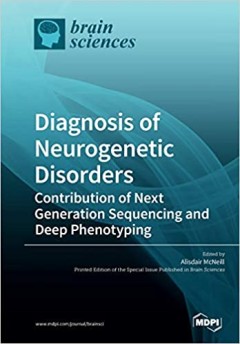
Diagnosis of Neurogenetic Disorders : Contribution of Next Generation Sequenc…
The contribution of genomic variants to the aetiopathogenesis of both paediatric and adult neurological disease is being increasingly recognized. The use of next-generation sequencing has led to the discovery of novel neurodevelopmental disorders, as exemplified by the deciphering developmental disorders (DDD) study, and provided insight into the aetiopathogenesis of common adult neurological d…
- Edition
- -
- ISBN/ISSN
- 978-3-03921-611-6
- Collation
- -
- Series Title
- -
- Call Number
- 616 DIA

The Adenosinergic System
Adenosine A2A receptor antagonists have shown great promise in the treatment of Parkinson's Disease and alleviation of symptoms. This book addresses various aspects of this class of drugs from their chemical development to their clinical use. Among the many insightful chapters contained in this book, there are three unique reviews that have not previously been published in any format: (1) a his…
- Edition
- -
- ISBN/ISSN
- 978-3-319-20273-0
- Collation
- XII, 337
- Series Title
- Current Topics in Neurotoxicity
- Call Number
- -

Recent Advances on the Modular Organization of the Cortex
The way you perceive the world, plan, make decisions and communicate your thoughts and feelings depends on the function and hierarchical arrangement of cortical modules. The ability to both provide adaptive responses to our ever-changing environment and to pursue a useful role in society is the most important problem faced by present day neuroscientists. In essence, the workings of cortical mo…
- Edition
- -
- ISBN/ISSN
- -
- Collation
- -
- Series Title
- -
- Call Number
- 616.8
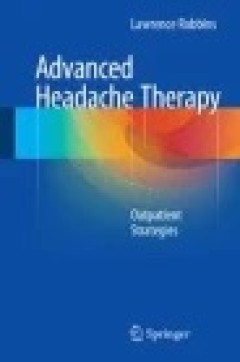
Advanced Headache Therapy: Outpatient Strategies
This cutting-edge book will cover various aspects of headache management, with a focus on difficult patients. Practical, step-by-step advice for treating challenging headaches, including migraine, refractory and cluster headaches, will be provided in detail along with how to approach patients of different ages and those with psychological disorders. Unique and complex case studies and complet…
- Edition
- Ed. 1
- ISBN/ISSN
- 978-3-319-13899-2
- Collation
- XIII, 208
- Series Title
- -
- Call Number
- 616.8 ROB a
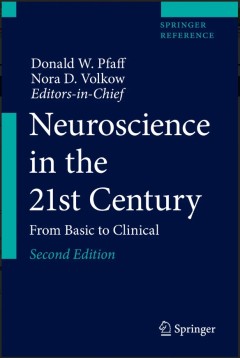
Neuroscience in the 21st Century: From Basic to Clinical
Edited and authored by a wealth of international experts in neuroscience and related disciplines, this key new resource aims to offer medical students and graduate researchers around the world a comprehensive introduction and overview of modern neuroscience. Neuroscience research is certain to prove a vital element in combating mental illness in its various incarnations, a strategic battlegr…
- Edition
- 2
- ISBN/ISSN
- -
- Collation
- LV
- Series Title
- -
- Call Number
- -
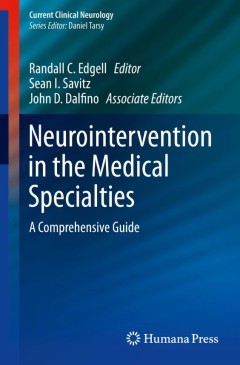
Neurointervention in the Medical Specialties:A Comprehensive Guide
- Edition
- 1
- ISBN/ISSN
- 978-1-4939-4208-4
- Collation
- XIII, 365
- Series Title
- Current Clinical Neurology
- Call Number
- -
- Edition
- 1
- ISBN/ISSN
- 978-1-4939-4208-4
- Collation
- XIII, 365
- Series Title
- Current Clinical Neurology
- Call Number
- -
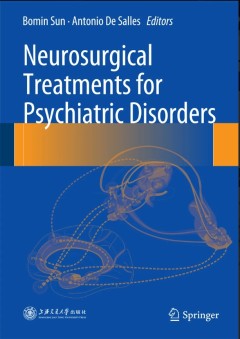
Neurosurgical Treatments for Psychiatric Disorders
This book describes contemporary clinical practice in the application of neurosurgical methods to the treatment of psychiatric disorders. It covers diverse topics such as neuroimaging, ethics and a historical review, Gamma Knife and High Frequency Ultrasound ablation, deep brain electrical stimulation and preoperative evaluation and postoperative follow-up. Its application in Obsessive Compulsi…
- Edition
- 1
- ISBN/ISSN
- 978-94-024-0045-8
- Collation
- XIV
- Series Title
- -
- Call Number
- -
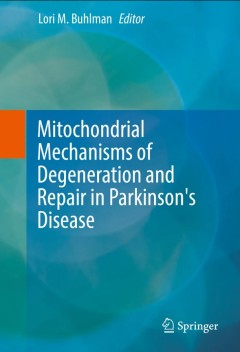
Mitochondrial Mechanisms of Degeneration and Repair in Parkinson's Disease
- Edition
- 1
- ISBN/ISSN
- 978-3-319-42137-7
- Collation
- XII, 275
- Series Title
- -
- Call Number
- -
- Edition
- 1
- ISBN/ISSN
- 978-3-319-42137-7
- Collation
- XII, 275
- Series Title
- -
- Call Number
- -

Bat Bioacoustics
Arguably biosonar is one of the ‘eye-opening’ discoveries about animal behavior and the auditory systems of echolocators are front and center in this story. Echolocation by bats has proven to be a virtual gold mine for colleagues studying neurobiology, while providing many rich examples of its impact on other areas of bats’ lives. In this volume we briefly review the history of the topi…
- Edition
- -
- ISBN/ISSN
- 978-1-4939-3527-7
- Collation
- XVI, 304
- Series Title
- -
- Call Number
- 612.8

Treatment of Chronic Pain by Medical Approaches the AMERICAN ACADEMY of PAIN …
From reviews of Deer, eds., Comprehensive Treatment of Chronic Pain by Medical, Interventional, and Integrative Approaches: "Comprehensive Treatment of Chronic Pain by Medical, Interventional, and Integrative Approaches is a major textbook... [I]t should be a part of all departmental libraries and in the reference collection of pain fellows and pain practitioners. In fact, this text could …
- Edition
- -
- ISBN/ISSN
- 978-1-4939-1818-8
- Collation
- 26 b/w illustrations, 21 illustrations in colour
- Series Title
- -
- Call Number
- -
 Computer Science, Information & General Works
Computer Science, Information & General Works  Philosophy & Psychology
Philosophy & Psychology  Religion
Religion  Social Sciences
Social Sciences  Language
Language  Pure Science
Pure Science  Applied Sciences
Applied Sciences  Art & Recreation
Art & Recreation  Literature
Literature  History & Geography
History & Geography